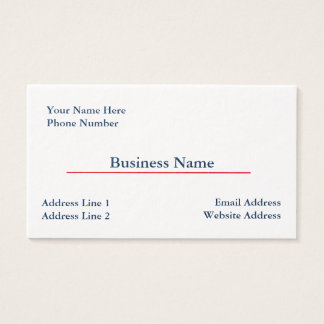Start-up entrepreneurs often have difficulty writing out business plans. This discipline is going to help you in many ways so don't skip this planning tool! To make it easier, here are eight steps that will produce a worthwhile plan:
- Review the two sample plans furnished in this session.
- Focus and refine your concept based on the data you have compiled.
- Gather all the data you can on the feasibility and the specifics of your business concept.
- Outline the specifics of your business. Using a "what, where, why, how" approach might be useful.
- Include your experience, education and personal information.
- Fill in the templates at the end of each session with clear language and realistic projections.
- Print off the business plan templates from each session into an MS Word document.
- You may wish to enhance your presentation with bar charts, pie charts and graphics.
Does Your Plan Include the Following Necessary Factors |
A Sound Business Concept: The single most common mistake made by entrepreneurs is not selecting the right business initially. The best way to learn about your prospective business is to work for someone else in that business before beginning your own. There can be a huge gap between your concept of a fine business and reality.
Understanding of Your Market: A good way to test your understanding is to test market your product or service before your start. You think you have a great kite that will capture the imagination of kite fliers throughout the world? Then craft some of them and try selling them first.
A Healthy, Growing and Stable Industry: Remember that some of the great inventions of all time, like airplanes and cars, did not result in economic benefit for many of those who tried to exploit these great advances. For example, the cumulative earnings of all airlines since Wilber Wright flew that first plane are less than zero. Success comes to those who find businesses with great economics and not necessarily great inventions or advances to mankind.
Capable Management: Look for people you like and admire, who have good ethical values, have complementary skills and are smarter than you. Plan to hire people who have the skills that you lack. Define your unique ability and seek out others who turn your weaknesses into strengths.
Able Financial Control: You will learn later the importance of becoming qualified in accounting, computer software and cash flow management. Most entrepreneurs do not come from accounting backgrounds and must go back to school to learn these skills. Would you bet your savings in a game where you don't know how to keep score? People mistakenly do it in business all the time.
Financial Management Skills: Build a qualified team to evaluate the best options for utilizing retained earnings. This information is contained in Session 6 of our Business Expansion course.
A Consistent Business Focus: As a rule, people who specialize in a product or service will do better than people who do not specialize. Focus your efforts on something that you can do so well that you will not be competing solely on the basis of price.
A Mind set to Anticipate Change: Don't commit yourself too early. Your first plan should be written in pencil, not in ink. Keep a fluid mind set and be aggressive in making revisions as warranted by changing circumstances and expanding knowledge.
Include Plans for Conducting Business Online: According to the January 2005 Trend/Forecasting Report of The Dilenschneider Group, in the U.S. alone, the 2004 holiday season online shopping jumped by more than 25% from 2003. (In 2005 it jumped another 25%!) Consumer and business-to-business online sales are set to expand exponentially in the coming decade, and small retailers can reach an ever-increasing pool of customers.
15% Off All Business Cards
VIEW ALL
$44.25
$58.55
$68.95
$65.40
$60.05










No comments:
Post a Comment